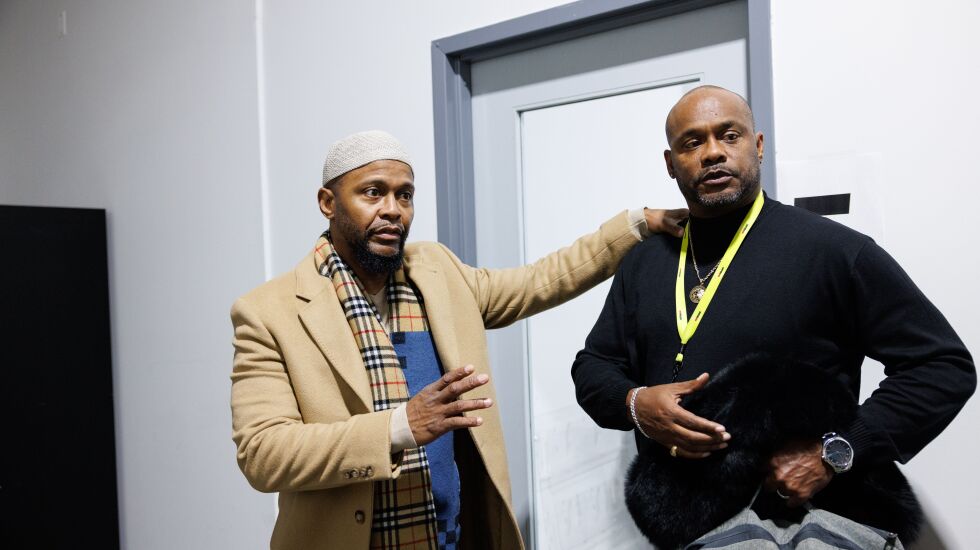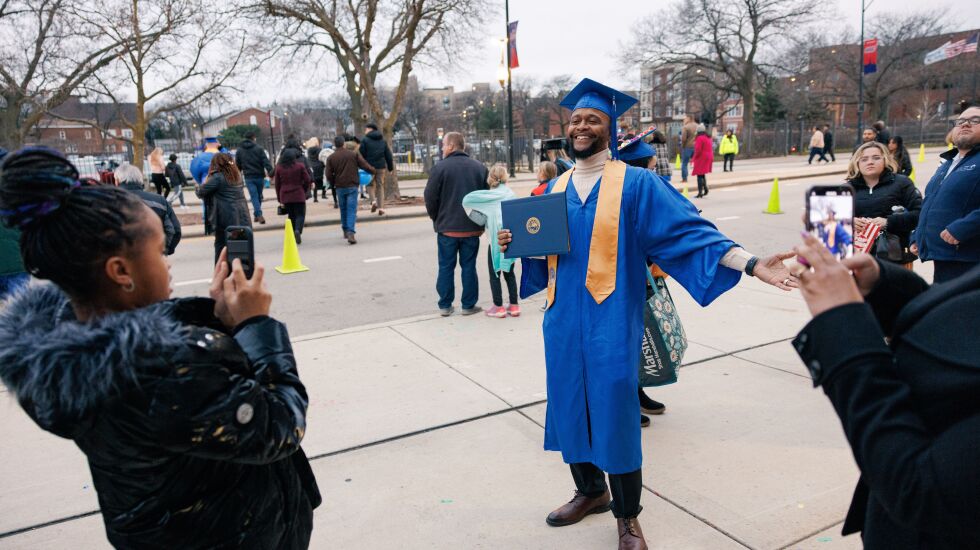
When he started out as an anti-violence outreach worker, the most important items on Billy “Bo” Deal’s resume were his former position as a high-level gang member and his two trips to prison.
As a bonus, he was also a rap battle champion who’d appeared on tracks with the likes of G Herbo and the late FBG Duck.
But earlier this month, Deal, 49, added another accomplishment to his resume: a bachelor’s degree in urban community studies from Northeastern Illinois University. When he started his courses four years ago, Deal realized a college degree was crucial to building a curriculum vitae that will allow him to lead the kinds of outreach programs that have employed him for more than a decade.
“Without that degree, you hit that glass ceiling,” Deal said. “I want to be at the table where people are making decisions about what is needed in our communities.”

Chicago was the launchpad for pioneering programs in anti-violence outreach around the time Deal finished his prison sentence for drug conspiracy in 2004.
A violent past and a rap sheet can be prerequisites for an outreach worker, a job where they are expected to walk up to young men who have been identified as instigators of neighborhood violence — often as shooters — and recruit them into therapeutic and training programs that can help them change their lives.
Two decades later, the number of violence intervention organizations has grown. But many of the workers who started in their teens, 20s or 30s are finding that building their careers requires credentials that can win over academics, philanthropic organizations and city leaders.
Metropolitan Peace Initiatives, the nonprofit organization where Deal has risen to become senior manager of field services, has been formalizing training for outreach workers and has been steering their workers into degree programs since it was founded in 2017.
Deal is the first to complete his degree.
“As the outreach workers were promoted into leadership roles and we were seeing what they are capable of, we realized we had something very special in our capacity-building through our program,” said Vanessa Perry DeReef, chief training officer for MPI. “Unless they want to retire as 65-year-old outreach workers, and I’m sure some do, they will have to enhance their skills.”
Deal would sometimes join online classes while on the job, parked in one of the struggling neighborhoods described in his Urban Community Studies courses.
For the more typical undergraduates in his classes, the lived experience of MPI workers added a lot to the discussion, said Northeastern professor Zada Johnson.
“I had a [traditional undergraduate student] tell me being in class with Bo and some of the other returning learners was one of the ‘realest’ experiences they’d had, ... that the classroom discussion was the textbook,” Johnson said.
Over the years, Johnson has had many former gang members come through her classes and said most of them complete their degrees despite the fact that they may have dropped out of high school decades earlier.
“I’ve found they are very sincere about commitment to make a difference in their community, so they are very serious students,” she said.
It helps that some hurdles to getting an advanced degree are lifted for anti-violence workers like Deal, who skipped entrance exams like the SAT in favor of a narrative admissions form.

MPI also assists with tuition or arranges financial aid, a key factor for violence workers who often make less than $50,000 a year.
Deal, who hadn’t done classwork since he graduated high school, wasn’t sure he’d be able to jump into college-level work, though he had accumulated a handful of credits for classes he took in prison. He also was skeptical that professors or books would be able to tell him anything he didn’t already know about the neighborhoods where he’d spent his entire life.
“It was really about getting the credential at first, if I’m being honest,” Deal admitted. “I learned about the origins of all these problems that we see out there. I used to always think, ‘Why are my people like this? Why are we so poor? Why do we act this way?’
“And when you find out about the lack of opportunities, the trauma of slavery and discrimination — it actually gives me hope that we can change things.”







